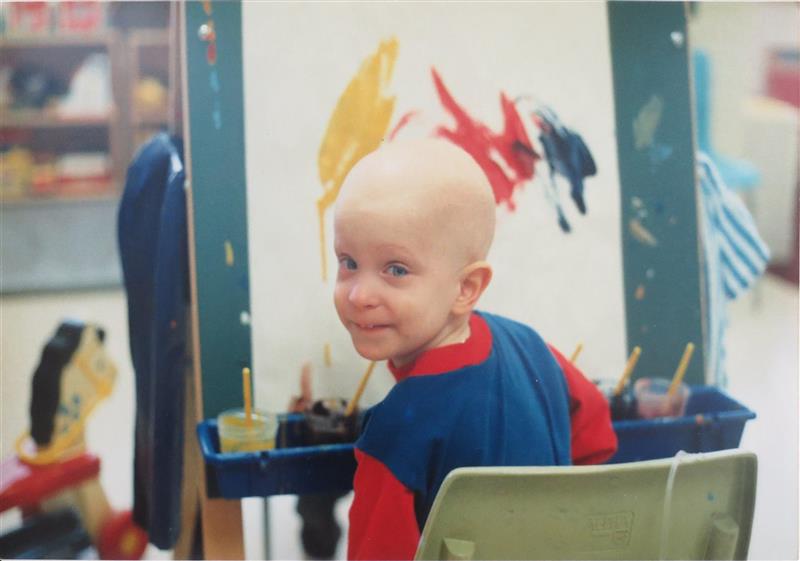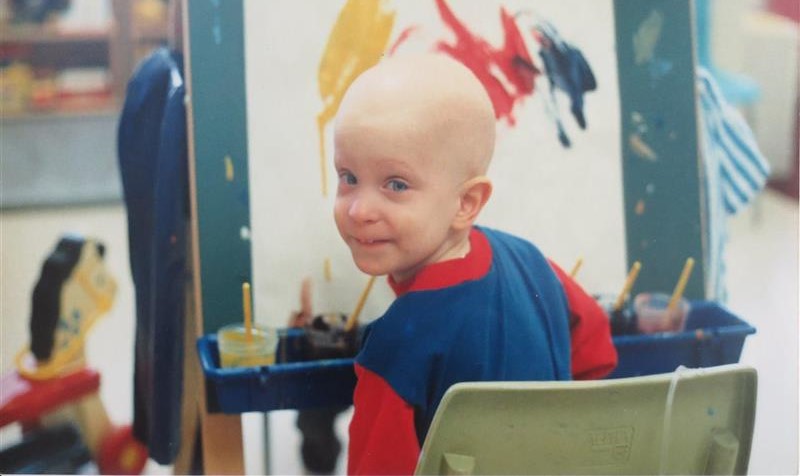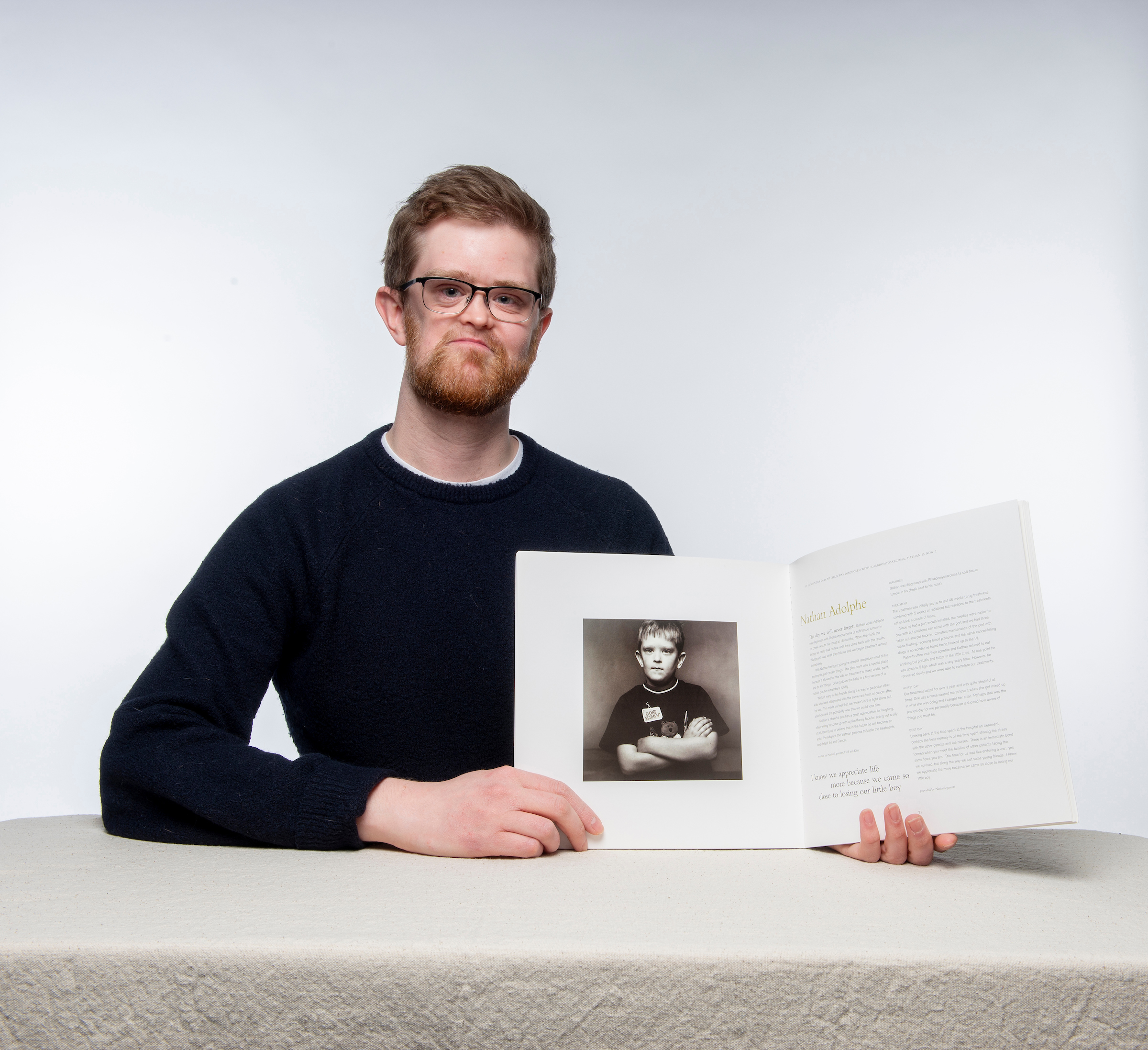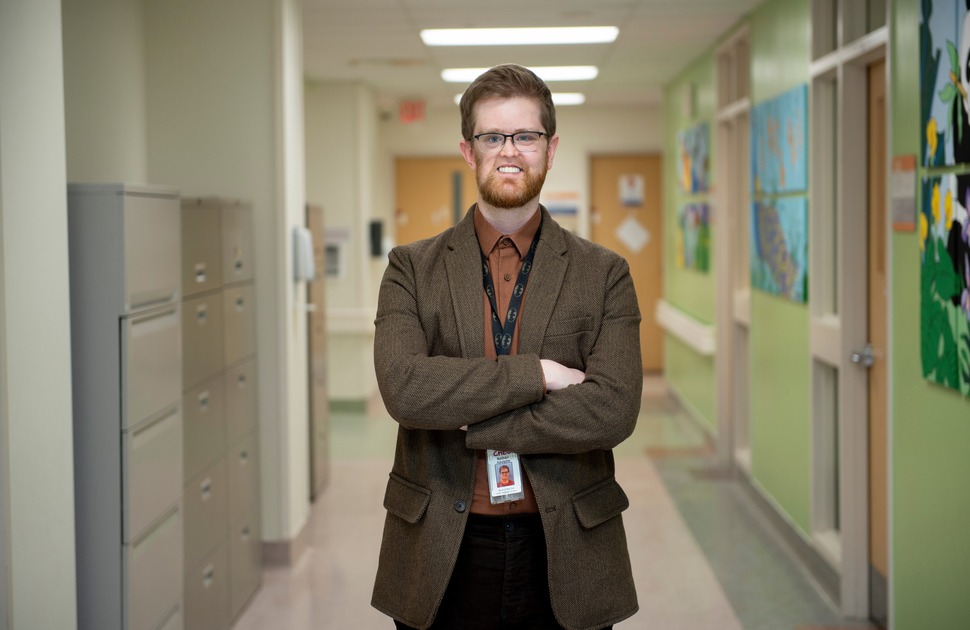
When Nathan Adolphe was just a toddler, he was diagnosed with rhabdomyosarcoma, a rare soft tissue cancer that attacks the skeletal muscles. Undergoing treatment for two years, he went into remission at age four.
Though he was too young to remember the grueling treatments, CHEO remained a constant in his life through annual follow-up appointments in the oncology aftercare program.
“Having cancer as a child doesn’t end when the treatment does,” Adolphe said. “There are lasting effects that require ongoing follow-ups, so you have to keep coming back. The journey continues long after treatment is over."
Over the years, those visits helped Adolphe build a strong bond with CHEO’s healthcare team, ultimately inspiring him to pursue a career at the hospital.
Childhood cancer in Canada
Each year, an average 880 children under the age of 15 are diagnosed with cancer in Canada, and around 100 of those children are treated at CHEO. Among Canadian children, leukemia is the most commonly occurring type of cancer, followed by brain and nervous system cancers.
The good news: survival rates are on the rise. Over 86 per cent of children survive a cancer diagnosis after five years, and this number is expected to grow with the development of new treatments.

As CHEO marks International Childhood Cancer Day on Feb. 15, Adolphe emphasizes the importance of a strong support system. Cancer, he said, doesn’t just affect the patient — but the entire family.
“It’s not just the doctors, the hospital, or the treatment—it’s a community effort,” he says. “It takes a lot of people. Whether you’re a neighbor, a family friend, or a community member, supporting in any way you can makes a difference.”
Finding purpose beyond cancer
Adolphe started working at CHEO in 2018, first as a photographer in the communications department, then as a research assistant in the Medical Day Unit, before transitioning to his current role as an oncology data manager.
His work today is deeply tied to the place that once saved his life. As an oncology data manager, he tracks and manages patient information for children receiving cancer treatment at CHEO. His work supports research efforts across Ontario, helping physicians develop new insights into childhood cancers.
But while he takes pride in his work, Adolphe is also conscious of the role cancer has played in defining his identity.
“For the longest time, I’ve been working in the Medical Day Unit and it’s something I’m very proud of,” he said. “But there’s also a sense that I don’t want cancer to be a defining theme in my life. A lot of people recognize me as the guy that had cancer as a kid. I want to explore other aspects of myself.”

That realization has led Adolphe to pursue a new path. Now in his final year of his social work degree at Carleton University, he hopes to pivot his career at CHEO to another capacity—as a social worker. His personal experience, he believes, gives him a distinctive ability to connect with young patients.
“I do recognize that I have a perspective that is unique and that could help a lot of people,” Adolphe said. “It gives me an opportunity to have more of an empathetic response to some people and to say: ‘I see where you are, and I get it.’”
Adolphe often opens up to patients and their families, sharing parts of his own journey when he feels it might help.
“As a research assistant, I would approach patients and families to explain studies we were doing in the clinic,” he said. “Depending on the person, I would share a little bit about myself and tell them I was in their shoes when I was a kid. And now I’m working here. Some kids really liked that.”
While Adolphe begins to redefine himself beyond his cancer experience, one thing remains certain: he will stay rooted – both emotionally and physically – at CHEO.
“I’ve chosen to turn my experience into opportunities,” he said. “To find meaning in it. People are always growing, always changing. Different things become important at different stages of life. And for me, this is my next step.”
CHEO is made up of inspiring people like Nathan. Join us.





